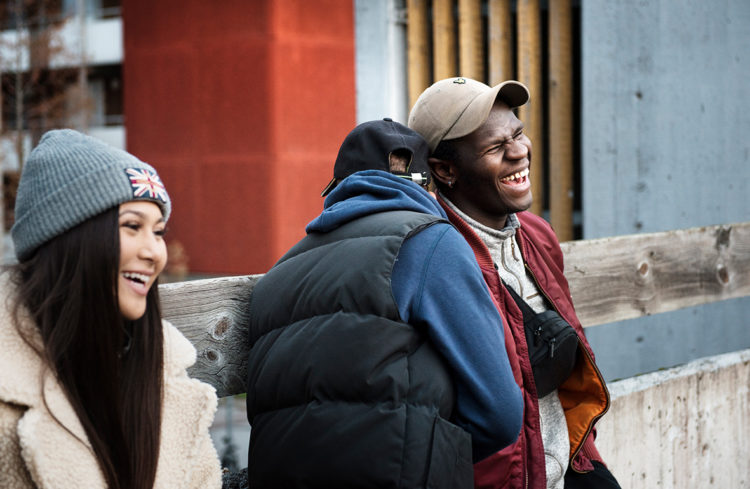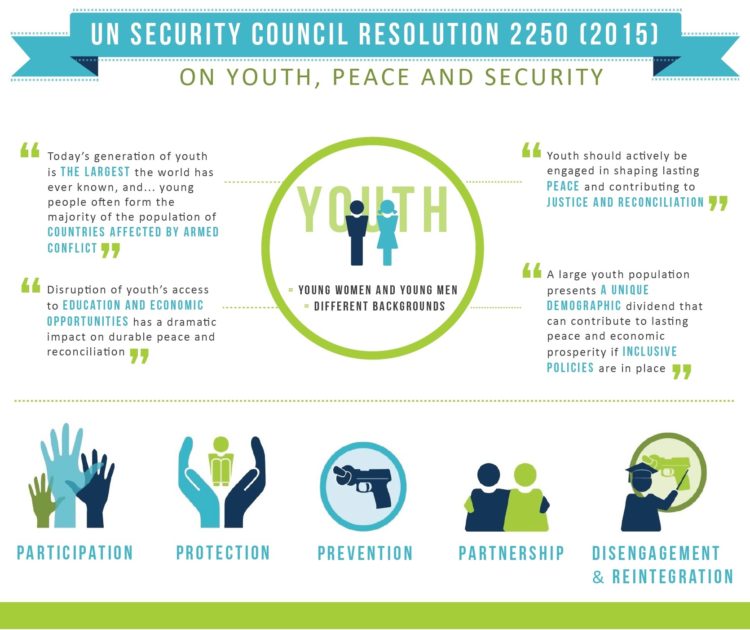
Young Peacebuilders: educational program for young people on mediation and conflict management
What we do
We offer our participants training in conflict management and mediative dialogue using a method called Dialogue for Peaceful Change (DPC). We select course participants who have the opportunity to influence society in their role as formal or informal leaders in their local context. Our training gives particpants effective tools to prevent everyday conflicts from escalating and potentially becoming dangerous or inhibitive of their personal freedom.
We also provide a network for our participants where they get support and advice from each other as well as external actors such as international mediators on how to do peacebuilding in practice. The network acts as an expert group, informing policy and decision makers on what needs to be done to strengthen youth inclusivity in peace work.
What we want
We are convinced that we have everything to gain from supporting young people in playing a greater role in local and global peace work. Not only is it their democratic right; young people possess invaluable skills that need to be utilized if we are to achieve sustainable peace and inclusive societies.
We want policy and decision makers to include young people in peace work – in a real way. Our goal is a more peaceful society, where young people can live without fear, polarization, and violence.
Dialogue for Peaceful Change (DPC) is a method developed by experts in mediation and conflict management at the Corrymeela peace and reconciliation center in Northern Ireland. The methodology was born from experience in working with the violent sectarian divisions in Northern Ireland. The method is taught as an educational program and increases understanding of how conflicts work, both biologically and socially, and how they are connected to resistance to change. DPC provides participants with the necessary tools to be able to handle and, above all, prevent conflict by applying a range of different tools including mediative dialogue.
After the training, the participants will have:
- Increased knowledge and understanding of why conflicts arise and escalate
- New tools in conflict management and mediation
- Stronger self-confidence and sense of belonging when it comes to how to act in situations of conflict and change
Said about the training:
”I was able to use the tools I learned the week after the training. A situation arose in the recreation yard between two young people and I chose to act in a different way than I usually do. I tested what we had learnt and it worked! I think the solution became more sustainable than it would have been if I did as I used to before ”
– participant from Stockholm
“I have always thought that transformation wasn’t possible without blood. Now I think it might be possible.”
– Filipino participant
”Before when I met young people in conflicts, I reacted very emotionally. Now I am more aware of what is happening in the situation and what is happening within myself. I also know that I have the opportunity to walk away if I want to.”
– participant from Örebro
Youth participation and UN Resolution 2250
This project is based on Fryshuset’s model of youth participation. It is a way of implementing UN Security Council Resolution 2250 and Objective 16 in the global objectives in the entire Fryshuset and in Sweden in general. The resolution, adopted in December 2015, is an important political tool to highlight the importance of including young people in the work on peace and security. The resolution emphasizes the importance of giving young people the opportunity to be active and involved in the work for peace and conflict prevention, to fight extremism and reducing the risk of young people being attracted to violent environments. Resolution 2250 is unique as it is the first time that the UN Security Council recognizes and highlights that young people have an important and positive role in peace-promoting work. The resolution also focuses on the often forgotten age group of 18-29 years.
